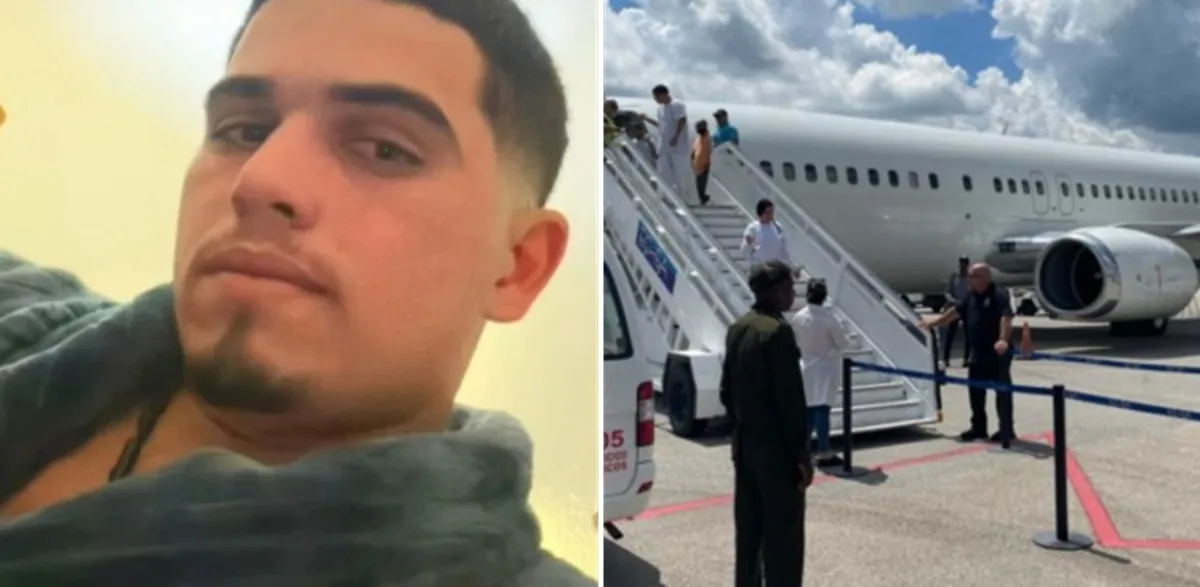
Cuban with Parole Self-Deports: Why Did He Do It?
- Cuba
- abril 1, 2025
- No Comment
- 125
MIAMI. — Uncertainty surrounding the immigration future of humanitarian parole recipients in the United States has led some Cubans to make extreme decisions. Such is the case of Eric Dayan Corcho Aguilar, a 22-year-old who chose to voluntarily return to Cuba out of fear of being deported.
Corcho Aguilar, originally from Villa Clara, was living in Denver, Colorado. According to Univision journalist Javier Díaz, the young man made this difficult decision after being unable to renew his work permit, which left him unemployed and fearing he could be sent to a detention center. With no viable options to regularize his immigration status, he felt that returning to his home country was his only alternative.
This Sunday, he began his return to Cuba, first traveling to Miami and then to Santa Clara, his hometown. He carried a few belongings and the money he had managed to save, with the intention of starting over in his homeland due to the cancellation of the parole program.
Corcho Aguilar’s case highlights the lack of information affecting many Cuban migrants in the U.S., especially those without access to legal counsel. Confusion around immigration issues can lead to hasty decisions with irreversible consequences.
With the revocation of the humanitarian parole program announced by the Donald Trump administration, set to take effect on April 24, thousands of Cubans face an uncertain future. Those who have not yet met the time requirement to apply for the Cuban Adjustment Act find themselves in a vulnerable position, making legal advice crucial before considering a return to the island.
This is not the first case of Cubans opting for self-deportation. In February, a couple living in Miami chose to return to Cuba out of fear of being transferred to the Guantánamo naval base and failing to obtain U.S. residency. Both, with an I-220A form, left with only their Cuban passports, hoping to gain residency from the island and later return to the U.S. However, a lawyer warned that this decision could be a “serious mistake,” as leaving the country without valid immigration permission amounts to abandoning any ongoing asylum case.
Recibe la información de CubaNet en tu celular a través de WhatsApp. Envíanos un mensaje con la palabra “CUBA” al teléfono +1 (786) 316-2072, también puedes suscribirte a nuestro boletín electrónico dando click aquí.




